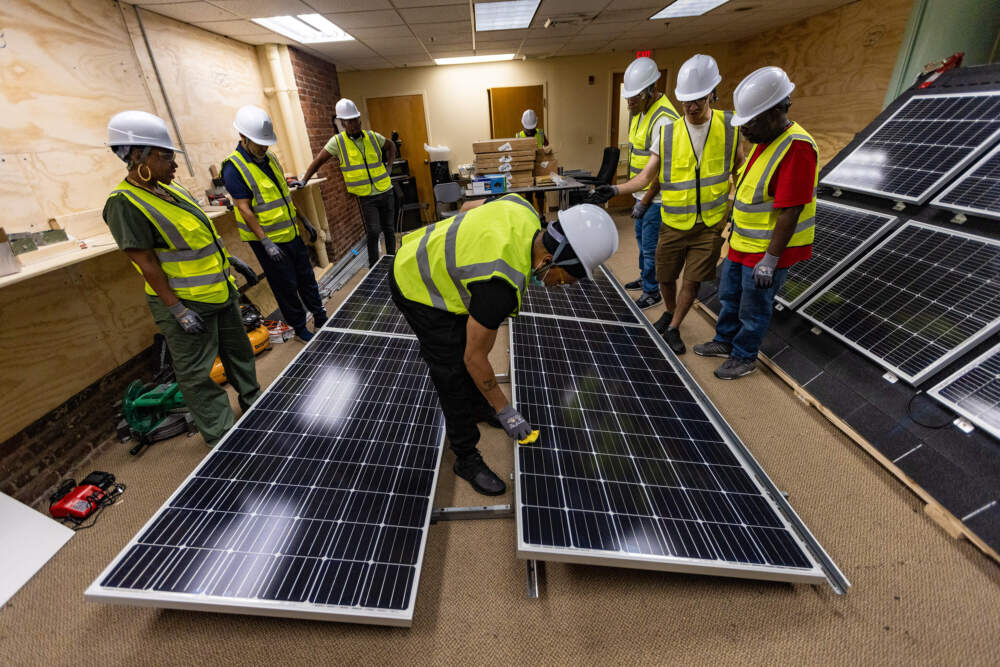Breathing Danger: How Your Surroundings Trigger Asthma Attacks
Environment
2025-05-01 12:00:00Content

In the quest to understand and combat lung diseases, Dr. Stavros Garantziotis is leading groundbreaking research at the National Institute of Environmental Health Sciences (NIEHS). His innovative approach focuses on identifying specific environmental exposures that trigger and exacerbate lung conditions, offering hope for prevention and targeted interventions.
Dr. Garantziotis and his team are diving deep into the complex relationship between environmental factors and lung health. By meticulously mapping out the precise exposures that contribute to lung diseases, they aim to develop more effective strategies for protection and treatment.
The research goes beyond traditional medical approaches, examining how everyday environmental interactions can impact respiratory health. From workplace exposures to environmental pollutants, the team is uncovering critical insights that could revolutionize our understanding of lung disease prevention.
Through cutting-edge scientific methods, Dr. Garantziotis is working to transform how we approach lung health, shifting from reactive treatment to proactive prevention. His work promises to provide individuals and communities with powerful tools to protect themselves from harmful environmental triggers.
Unraveling the Environmental Mysteries of Asthma: A Groundbreaking Journey into Personalized Lung Health
In the intricate landscape of respiratory health, asthma stands as a complex challenge that continues to perplex medical researchers and healthcare professionals worldwide. The quest to understand its underlying mechanisms has led scientists to explore beyond traditional medical boundaries, diving deep into the intricate relationship between environmental exposures and lung disease.Decoding the Hidden Triggers: Where Environment Meets Respiratory Vulnerability
The Molecular Detective Work of Environmental Medicine
Modern medical research has transformed our understanding of asthma from a simple respiratory condition to a sophisticated interplay of genetic predisposition and environmental interactions. Dr. Stavros Garantziotis and his team at the National Institute of Environmental Health Sciences (NIEHS) are pioneering a revolutionary approach that treats each patient's asthma as a unique molecular puzzle. Their groundbreaking research focuses on identifying specific environmental exposures that trigger inflammatory responses in lung tissues. By utilizing advanced molecular tracking techniques, researchers can now map how individual environmental factors interact with genetic markers, creating personalized risk profiles for asthma development.Mapping the Invisible Landscape of Lung Vulnerability
The complexity of asthma extends far beyond traditional diagnostic methods. Environmental exposures such as air pollution, chemical compounds, workplace irritants, and even subtle atmospheric changes can dramatically influence lung health. Garantziotis' research reveals that these exposures don't just trigger symptoms but fundamentally alter cellular mechanisms within respiratory systems. Cutting-edge technologies like single-cell RNA sequencing allow researchers to observe microscopic changes in lung cells when exposed to different environmental stimuli. This granular approach provides unprecedented insights into how external factors can transform cellular behavior, potentially predicting and preventing asthma onset.Precision Medicine: The Future of Respiratory Healthcare
The emerging field of precision environmental medicine represents a paradigm shift in respiratory healthcare. Instead of treating asthma with broad, generalized approaches, researchers can now develop targeted interventions based on an individual's unique environmental and genetic profile. Advanced computational models and artificial intelligence algorithms help scientists predict potential asthma triggers by analyzing complex datasets. These models integrate genetic information, environmental exposure records, and individual health histories to create comprehensive risk assessment frameworks.Breaking Down Barriers: Interdisciplinary Research Strategies
Garantziotis emphasizes the critical importance of collaborative research across multiple disciplines. By bringing together experts from environmental science, genetics, immunology, and clinical medicine, researchers can develop more holistic understanding of asthma's intricate mechanisms. Innovative research methodologies now allow scientists to simulate environmental interactions in controlled laboratory settings, providing unprecedented opportunities to study how different exposures impact lung health. These approaches move beyond traditional observational studies, offering dynamic, real-time insights into respiratory system responses.Global Implications and Future Directions
The potential impact of this research extends far beyond individual patient care. By understanding the nuanced relationships between environmental exposures and respiratory health, researchers can develop targeted public health strategies, create more effective prevention programs, and design advanced diagnostic tools. As climate change and environmental transformations continue to reshape our global ecosystem, understanding these complex interactions becomes increasingly crucial. The work of researchers like Garantziotis represents a beacon of hope in our collective journey to comprehend and mitigate respiratory health challenges.RELATED NEWS
Environment

Toxic Fragrance Alert: Your Favorite Scented Candles Might Be Polluting Your Home Like a Tailpipe
2025-02-17 05:17:04







